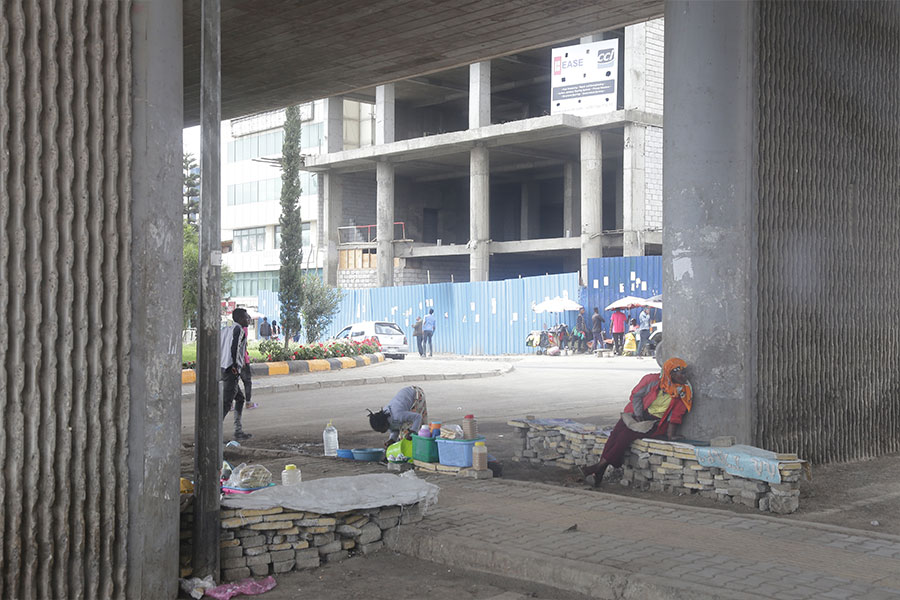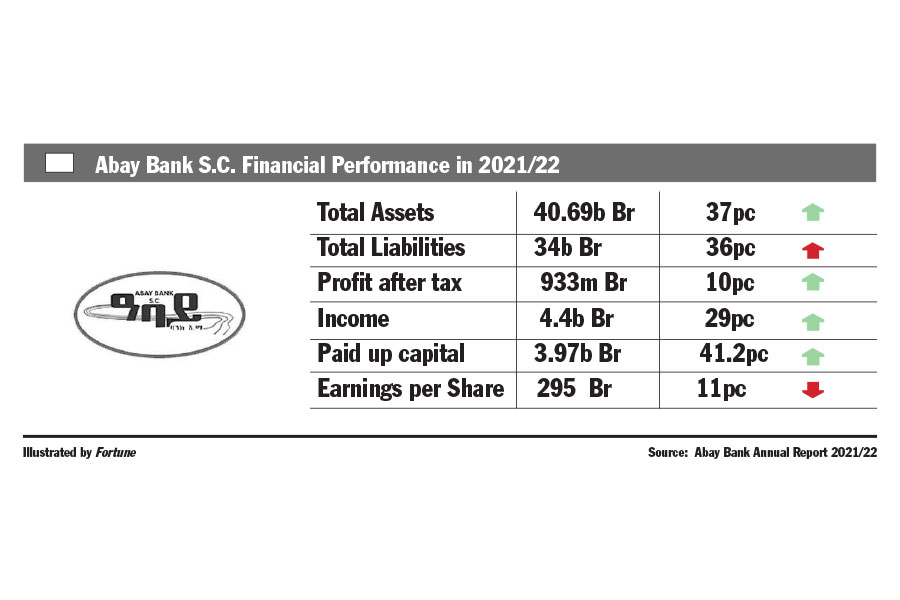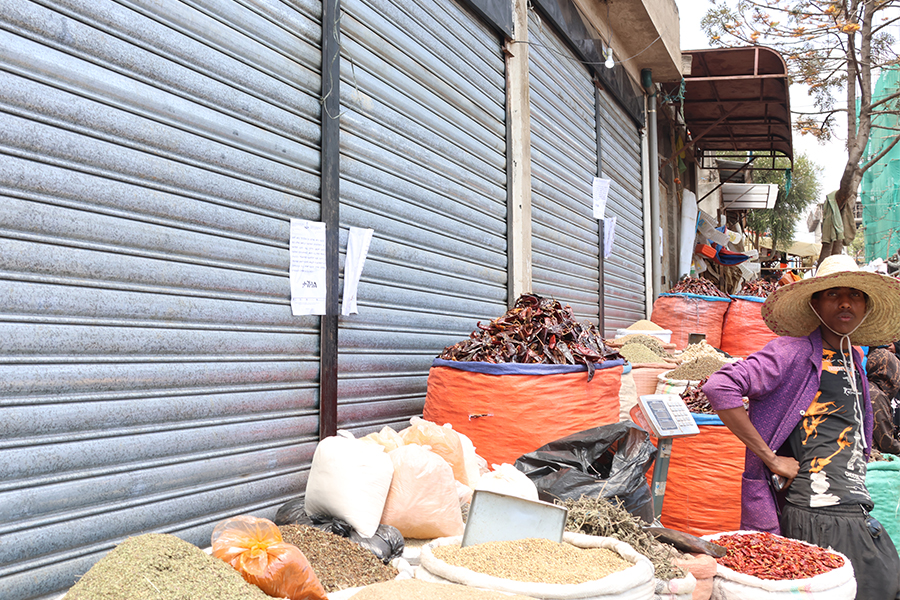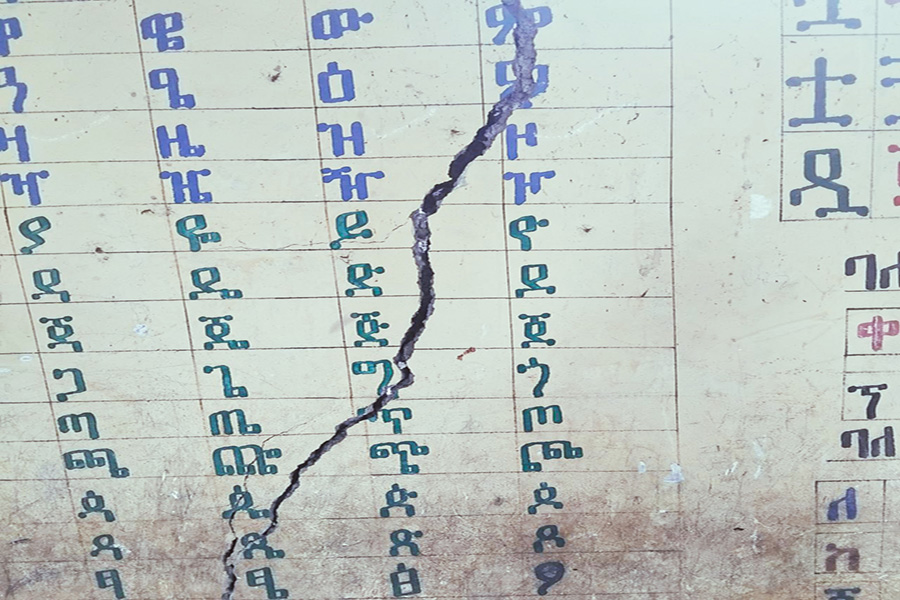
Fortune News | Mar 16,2024
The federal government is moving to reform the franco valuta scheme after it opened unintended avenues for market distortion, according to Prime Minister Abiy Ahmed (PhD). Originally aimed at easing foreign currency flows for manufacturers and traders amid a forex shortage, the scheme allowed businesses to import goods without presenting foreign currency documentation. However, issues have arisen, with officials noting its impact on parallel market rates and concerns over capital flight.
Prime Minister Abiy acknowledged the pitfalls of franco valuta, noting to curb its adverse effects.
"It’ll be rectified soon," he said.
National Bank of Ethiopia (NBE) Governor Mamo Mihretu confirmed ongoing assessments of the scheme’s performance, hinting at "critical measures" that may follow to limit further market disruption.
"We’ll soon know its exact effects," he told Fortune.
Experts and financial consultants expressed mixed views on the scheme's efficacy, noting that while it offered convenience for traders, it also enabled illicit practices.
Macro-economist Tewodros Mekonnen (PhD) argued that franco valuta is unsustainable until forex supply and demand issues are resolved. He cautioned, "The measure counteracted the reform."
Eshetu Fantaye, a financial consultant, pointed out that while franco valuta benefits traders by reducing transaction costs, it has been undermined by invoicing fraud and other illicit activities.
"It has to be removed," he argued. "It's counter-productive."
Abiy’s Parliament address followed the new President’s inaugural speech last month. He projected a vision of an economy on the brink of transformation, supported by recent macroeconomic reforms.
He said parliamentarians are about to witness an economic transformation “never seen before”, forecasting an 8.4pc GDP growth for the year. Agriculture (6.1pc), industry (12.8pc), and services (7.1pc) are expected to be the primary drivers. Abiy tempered his optimism with an acknowledgement of the carefully managed macroeconomic adjustments over the past three months.
"We’re being conservative with the numbers," he added.
Abiy noted a 161pc growth in NBE reserves and a 29pc growth among private banks, as well as a 24pc rise in remittances following forex regime liberalisation. He said the gap between official and parallel market rates is now under five percent.
Despite these gains, Tewodros advised caution, noting that substantial demand for forex remains unaddressed.
"We are not out of the woods yet," he said.
Abiy reported that commercial banks purchased 652 million dollars and sold nearly one billion dollars post-reforms, supported by credit facilities and grants that grew ninefold from last year to 3.4 billion dollars.
Eshetu notes the need for sufficient forex reserves, suggesting the regulator cap foreign currency disbursements at 20pc of daily assets to reduce exposure and enhance banking stability. He also advised the state-owned Commercial Bank of Ethiopia (CBE) to avoid speculative currency practices that could heighten financial risk.
"Caution is needed now more than ever to manage reserves," he said.
The Prime Minister discussed the 900-billion-Br capitalisation effort that helped prevent a potential collapse of CBE, which would have affected the entire banking industry.
Abiy praised recent reforms in exports, noting that foreign trade brought in 1.5 billion dollars over the past three months, with gold contributing half a billion dollars. Merchandise exports are projected to reach five billion dollars this fiscal year, with coffee expected to generate two billion dollars from about half a million tons produced. He stated that Ethiopia now ranks third globally in coffee production, after Brazil and Vietnam. Abiy also pointed to the country's doubling of cultivated land to 30 million hectares over the past five years, emphasizing growth in wheat farming to reach 300 million quintals.
Plans for major expansions in the aviation sector were also announced by the PM, including 124 new aircraft orders and a new airport to increase passenger capacity. The government aims to create 4.3 million jobs in emerging sectors like business process outsourcing (BPO).
Highlighting a surge in investment, Abiy noted that local investors now make up 50pc of industrial park tenants. He credited improved policies, particularly those encouraging import substitution, for the 12.8pc growth in the industrial sector. He projected a 67pc productivity increase in the coming year, with 72 large-scale industrial projects set to launch.
While the Prime Minister focused on economic reforms, Parliamentarians raised concerns about persistent conflicts and inflation.
Abebaw Desalew (PhD), MP-NaMA, voiced concern over insecurity in Amhara Regional State, where abductions and displacements continue. He also underlined the detention of MPs without court orders, including NaMA’s Christian Tadele. Abiy responded that his administration has made efforts to negotiate, and emphasised the region’s role as an industrial centre.
Tax mobilisation has declined relative to GDP over the past four years. Tewodros underscored that 90pc of tax revenue comes from just 10pc of taxpayers, questioning whether reforms might overburden already-taxed individuals.
Ethiopia’s low tax-to-GDP ratio compared to other Sub-Saharan countries was a point of pain for the administration which aims to collect 1.5 trillion Br in revenues this year. Even if it increased by two percentage points, would still be half of Kenya’s 16pc, Abiy said.
The federal government plans to roll out subsidies—80 billion Br for safety nets, 53 billion Br for fertilisers, 15 billion Br for pharmaceuticals, and nine billion Birr for cooking oil—to protect low-income groups.
As inflation continues to affect citizens, especially civil servants, Abiy mentioned the delay in implementing a planned 91-billion-Br wage increase due to data inaccuracies that risk wasting public funds.
Expats noted that a productive private sector could ease inflationary pressures and enhance disposable income.
"All this means little without peace and security," said Tewodros.
PUBLISHED ON
Nov 03,2024 [ VOL
25 , NO
1279]

Fortune News | Mar 16,2024

Fortune News | Feb 06,2024

Radar | Nov 26,2022

Delicate Number | Jul 13,2024

Fortune News | Mar 18,2023

Agenda | Mar 02,2024

Delicate Number | Oct 25,2025

Fortune News | Nov 03,2024

Fortune News | Jul 13,2025

Agenda | May 23,2020

Dec 22 , 2024 . By TIZITA SHEWAFERAW
Charged with transforming colossal state-owned enterprises into modern and competitiv...

Aug 18 , 2024 . By AKSAH ITALO
Although predictable Yonas Zerihun's job in the ride-hailing service is not immune to...

Jul 28 , 2024 . By TIZITA SHEWAFERAW
Unhabitual, perhaps too many, Samuel Gebreyohannes, 38, used to occasionally enjoy a couple of beers at breakfast. However, he recently swit...

Jul 13 , 2024 . By AKSAH ITALO
Investors who rely on tractors, trucks, and field vehicles for commuting, transporting commodities, and f...

Nov 1 , 2025
The National Bank of Ethiopia (NBE) issued a statement two weeks ago that appeared to...

Oct 25 , 2025
The regulatory machinery is on overdrive. In only two years, no fewer than 35 new pro...

Oct 18 , 2025
The political establishment, notably the ruling party and its top brass, has become p...

Oct 11 , 2025
Ladislas Farago, a roving Associated Press (AP) correspondent, arrived in Ethiopia in...